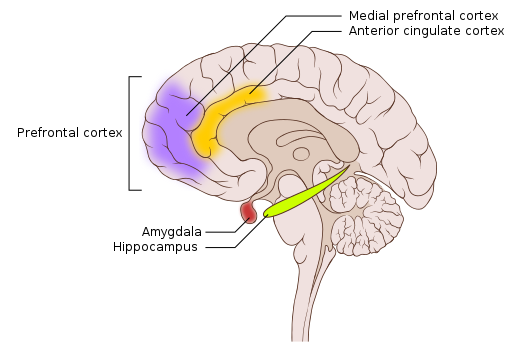Summary | Excerpt | Reviews | Beyond the Book | Read-Alikes | Genres & Themes | Author Bio

The Story of a Private Investigation
by Erika KrouseThis article relates to Tell Me Everything
 Rape survivor Erika Krouse rarely dreams. She has lost memories. She has trouble remembering what happened the prior week but knows in spectacular detail how it felt to be raped when she was a child by someone her mother loved. A heartbreaking passage in her memoir Tell Me Everything: The Story of a Private Investigation explains, "It's as if the regular roads are missing from my mental map."
Rape survivor Erika Krouse rarely dreams. She has lost memories. She has trouble remembering what happened the prior week but knows in spectacular detail how it felt to be raped when she was a child by someone her mother loved. A heartbreaking passage in her memoir Tell Me Everything: The Story of a Private Investigation explains, "It's as if the regular roads are missing from my mental map."
Trauma can change the brain in various ways. Brain chemistry as well as structure may be altered, affecting cognition, emotional management and neurological functioning. Specific areas of the brain that can be negatively affected by trauma include the amygdala, hippocampus and prefrontal cortex.
The amygdala is an almond-shaped section of the brain that assists in emotional management, including fear response and survival instincts. If a person with post-traumatic stress disorder (PTSD) is exposed to stimuli that recalls a traumatic episode, the amygdala can become hyperactive, and this may cause a disproportionate fear response.
The hippocampus is responsible for storing and retrieving memories. Unlike the amygdala, it can show decreased function in someone with PTSD when they are reminded of a traumatic episode. Trauma survivors may experience lessened memory function in general. Krouse writes, "I remember asking my mother 'What is a pear? Or a shoe? What is it?'" She later states in that same passage, "I could no longer believe in the category of the thing, or in the words that signified that category."
The prefrontal cortex is responsible for reasoning and rational thinking. Like the hippocampus, the prefrontal cortex may fail to function at normal levels in people with PTSD when they are reminded of their trauma. Being subsumed by irrational fears, as those dealing with trauma sometimes are, can be a sign of decreased activation of the prefrontal cortex. Krouse writes of life with her boyfriend J.D, "I had dread-induced panic attacks the minute he left for work, or went anywhere without me."
Sexual assault survivors may experience a wide swathe of emotions in the days and months after the assault incident. Years later, they can feel numb to changes that seem permanent. According to Krouse, her brain fell apart when she was raped: "Nothing had a container anymore, or maybe it was that the label had nothing to do with the box."
"I am less," Krouse writes. "I will never be whole with my shrunken brain. I won't be able to remember, to see, laugh, feel, or dream well. I won't understand myself or the world. I will always know I could have been more than I am."
Brain structures involved in dealing with PTSD. Created by Patrick J. Lynch, medical illustrator; C. Carl Jaffe, MD, cardiologist (CC BY 2.5). Modified by Fvasconcellos; Whidou (CC BY-SA 4.0).
Filed under Medicine, Science and Tech
![]() This "beyond the book article" relates to Tell Me Everything. It originally ran in April 2022 and has been updated for the
March 2023 paperback edition.
Go to magazine.
This "beyond the book article" relates to Tell Me Everything. It originally ran in April 2022 and has been updated for the
March 2023 paperback edition.
Go to magazine.
Your guide toexceptional books
BookBrowse seeks out and recommends the best in contemporary fiction and nonfiction—books that not only engage and entertain but also deepen our understanding of ourselves and the world around us.